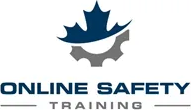Propane Cylinder Handling Online Course
$59.99 CAD
Do you need to certify that your employees can safely handle propane fuel tanks often used in commercial, industrial, and domestic settings? This Canadian Propane Cylinder Handling Online Course will provide certification for handling and exchanging propane cylinders safely. This certifies that the participants will understand the components of a propane cylinder, the science behind propane use and storage, and the legal requirements to work with propane.
Learn about Safe Handling and Exchange for Propane Cylinders
With our Propane Cylinder Handling Online Course, participants will learn:
- The Chemistry of Propane
- Components of Vapour & Liquid Propane Withdrawal Systems
- Personal Protective Equipment
- Cylinder Inspection, Handling and Exchange
- Safe Transport and Storage of Propane
- Emergency & First-Aid Response
Our Propane Cylinder Handling & Exchange Online Course offers the latest information on all these topics.
Propane is a fuel that most of us are familiar with. It powers barbecues, burners, heaters, torches, and various industrial equipment. But how many of us are familiar with the hazards it presents?
When a product becomes commonplace, it can be easy to forget how hazardous it can be, particularly on a work site. That’s why when working with propane, there are laws and standards in place that are designed to keep you and those around you safe. While the specific regulations differ between provinces and states, one consistent factor is the requirement that a worker be competent in any work undertaken. Being competent means you:
- Are qualified because of knowledge, training, and experience to perform your assigned work safely
- Are familiar with the health and safety regulations of the province, state, or territory you work in
- Have knowledge of any potential or actual danger to health and safety in the workplace
This course is designed to improve the competency of workers in order to help them meet the requirements of the CSA B149.2 Propane Storage and Handling Code in Canada and OSHA 1910.110 Storage and Handling of Liquefied Petroleum Gases Code in the United States. By the end of this course, you should be able to:
- Identify characteristics of propane as well as its various hazards and their control methods
- List the components of both vapour and liquid withdrawal systems
- Outline the steps for inspecting propane cylinders and testing for leaks
- Describe requirements for transporting, handling, exchanging, and storing cylinders
- Outline emergency response and first aid procedures as they relate to propane incidents
Information in this course will be presented in 6 chapters:
- Chapter 1: Propane Basics
- Chapter 2: Propane Withdrawal Systems
- Chapter 3: Cylinder Inspections
- Chapter 4: Transporting, Handling and Exchanging Cylinders
- Chapter 5: Storing Cylinders
- Chapter 6: Emergency Response
Duration
The Propane Cylinder Handling & Exchange Course takes approximately 2 hours to complete.
Testing
Participants in the Propane Cylinder Handling & Exchange Course will be assessed by testing throughout the course. Participants must achieve a mark of 80% or higher to earn their certificate of completion. Those that do not reach the required mark will be allowed to repeat the course two additional times.
Certificate of Completion
Participants who successfully pass the Propane Cylinder Handling & Exchange Training Course will earn a certificate of completion, which they can print out or download and keep for their records. The certificate is consistent with the Canadian Standards Authority’s Regulation B149.2-10 for propane handling and exchange. Your certificate is valid for 3 years.
How Do You Safely Handle a Propane Cylinder?
- Propane cylinders are portable containers that are generally used in the home. Propane tanks are typically more permanent and have more storage
- Cylinders must be inspected every 10 years. Markings on the collar of the cylinders can tell you the date of manufacture and inspections since then.
- Never throw a propane cylinder in the garbage. Always dispose of old cylinders at a municipal transfer station or depot that accepts cylinders. Find out more about how to dispose of propane cylinders in each province.
More Information:




Other courses you may be interested in:
Chainsaw Safety Online Course
$79.99 CAD
Confined Space Awareness Online Course
$69.99 CAD
TDG – Transportation of Dangerous Goods Online Course
$29.95 CAD
